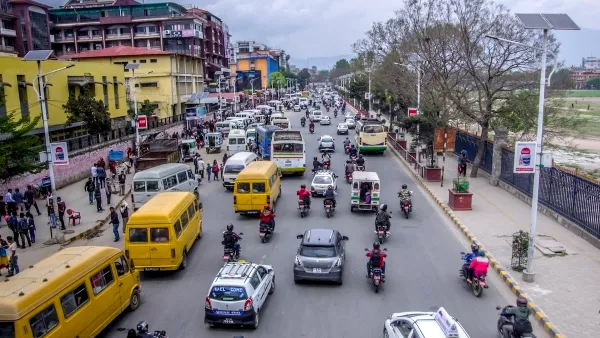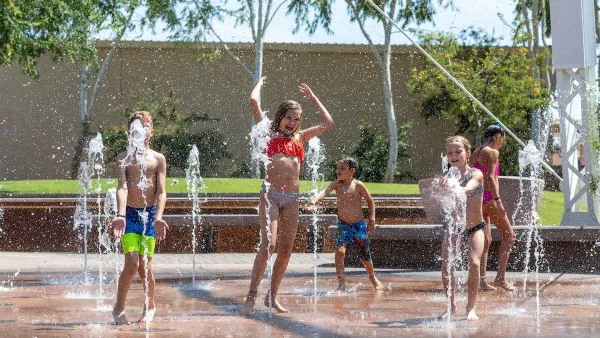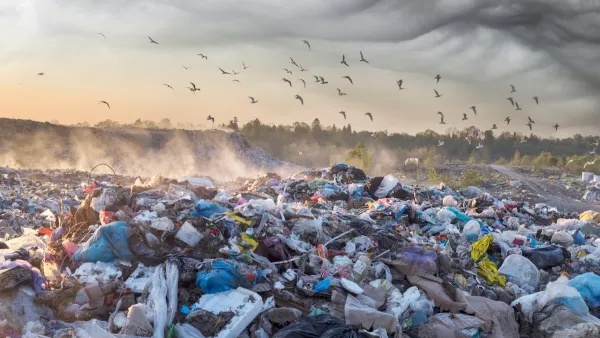Justin Gillis discusses the controversy over President Obama's and Governor Romney's decision to skirt the topic of climate change during the presidential debates.
With the presidential debates over and no explicit mention of climate change, "environmental groups - and environmentally minded voters - are aghast," says Gillis. "This campaign is the first time that has happened since 1988." The decision by the candidates to skip the issue has raised nationwide frustration and concern about the implications of their "climate silence."
"By ignoring climate change, both President Obama and Governor Romney are telling the rest of the world that they do not take it seriously, and that America cannot be expected to act with the intensity and urgency needed to avert catastrophe," said Erich Pica, president of Friends of the Earth Action. The candidates have focused a great deal on energy policy, but Gillis believes "it has essentially been a competition in who could heap the most praise on fossil fuels."
Romney has called for coal, oil and natural gas production, while Obama has pushed for green energy. Why wasn't the "c" word mentioned in any of the debates? Candy Crowley of CNN, who moderated the second debate, "felt that most voters preferred that the debate stay focused on the economy." Eugene M. Trisko, a lawyer and consultant for the United Mine Workers of America, said, "No candidate has been able to portray climate change policy as a win-win. That's because they understand that the root of climate change mitigation strategy is higher energy costs. It's an energy tax, and that's something you don't want to talk about in a debate."
In fact, "[m]any political observers are not especially surprised that climate change has gotten short shrift in this campaign," adds Gillis, "In general, environmental concerns tend to rise in the public mind in times of prosperity and sink in hard times."
FULL STORY: The Issue That Dare Not Speak Its Name

Planetizen Federal Action Tracker
A weekly monitor of how Trump’s orders and actions are impacting planners and planning in America.

Maui's Vacation Rental Debate Turns Ugly
Verbal attacks, misinformation campaigns and fistfights plague a high-stakes debate to convert thousands of vacation rentals into long-term housing.

San Francisco Suspends Traffic Calming Amidst Record Deaths
Citing “a challenging fiscal landscape,” the city will cease the program on the heels of 42 traffic deaths, including 24 pedestrians.

Defunct Pittsburgh Power Plant to Become Residential Tower
A decommissioned steam heat plant will be redeveloped into almost 100 affordable housing units.

Trump Prompts Restructuring of Transportation Research Board in “Unprecedented Overreach”
The TRB has eliminated more than half of its committees including those focused on climate, equity, and cities.

Amtrak Rolls Out New Orleans to Alabama “Mardi Gras” Train
The new service will operate morning and evening departures between Mobile and New Orleans.
Urban Design for Planners 1: Software Tools
This six-course series explores essential urban design concepts using open source software and equips planners with the tools they need to participate fully in the urban design process.
Planning for Universal Design
Learn the tools for implementing Universal Design in planning regulations.
Heyer Gruel & Associates PA
JM Goldson LLC
Custer County Colorado
City of Camden Redevelopment Agency
City of Astoria
Transportation Research & Education Center (TREC) at Portland State University
Jefferson Parish Government
Camden Redevelopment Agency
City of Claremont





























